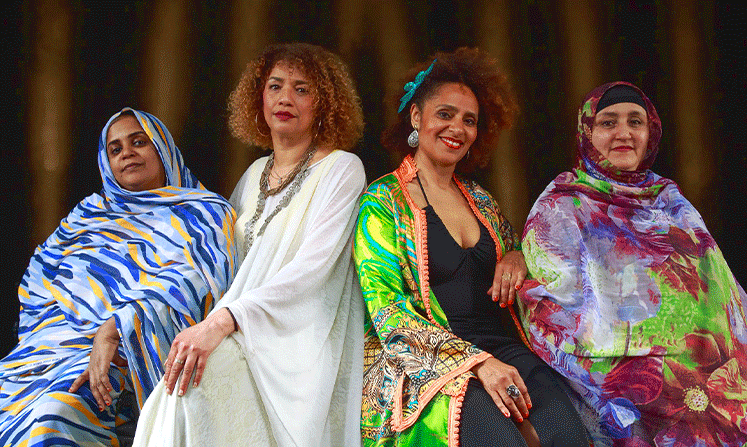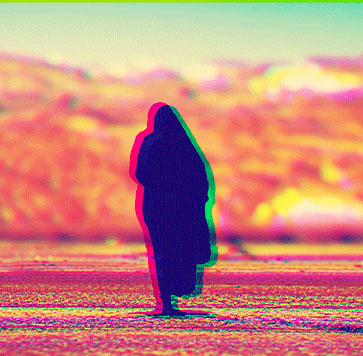NOURA MINT SEYMALI
Born into a long line of griots, singer Noura Mint Seymali embraced the artistic culture of her ancestors from an early age and now draws from the deepest roots of the Mauritanian Moorish musical dynasty. And yet this traditional core is only the primary impulse of the creative work undertaken by Noura and her musicians for several years, which has succeeded in popularising and reinventing Moorish music. The daughter-in-law of the legendary Mauritanian singer Dimi Mint Abba, Noura Mint also plays the arsine – a type of kora. She takes her family legacy to new heights.
MALIKA ZARRA
Malika was born in southern Morocco and grew up in France. She took classes at a conservatoire and turned towards Jazz, which became her primary musical world. The freedom it gave her encouraged her to write her own music and led her to sing in Arabic, her mother tongue, and to express herself in different musical idioms from soul to gnawa and Chaabi. In 1996, she moved to New York, where she lived for many years. She discovered a cosmopolitan environment that allowed her to explore all the facets of her musical personality, which led her to perform around the world - Carnegie Hall, the Apollo Theatre, the Montreal Jazz festival, the Kennedy Center, the Teatro Colsubsidio, Bogota and many more. She has lived in France since 2018.
SOUAD ASLA
The singer, songwriter and author Souad Asla was born in Béchar, southern Algeria and passionately defends the rich musical tradition of the Algerian desert. Drawing from diwan, malhoun, zeffani and gnawa, her personal language owes as much to the sounds of her childhood as to music she discovered in Paris, where she has lived for 20 years. With Lemma, a project she has been running for several years, she has brought together woman musicians from Béchar whose performances were confined to private rituals for women. They now perform together at major European venues.
DIGHYA MOHAMMED SALEM
Born in 1966 in Dakhla, Western Sahara, Dighya Mohammed Salem is a singer. After being a refugee in a camp on the Algerian border, she went to school in Lybia and Algeria, where she began her artistic career. Her first single, Haya Shababna, earned her the title of Best Regional Woman Singer. With the Sahraoui group Shaheed El Wali, she recorded an album in Paris in 1989 and toured in Spain, Italy and Germany. She returned to Algeria to continue her studies, and then worked for the Algerian Ministry of Culture. She sought asylum in France with her daughter in 2018 and founded the Dighya Moh-Salem Band at a workshop for artists in exile.
Photography ©Kevin Buy


